Orthopedics
Neurology
Cardiology
Dermatology
Oncology
Cell Therapy
Gene Therapy
Tissue Engineering
Stem Cell Therapy
Hospitals
Research Laboratories
Pharmaceutical Companies
Academic Institutions
Musculoskeletal Disorders
Cognitive Disorders
Cardiovascular Diseases
Chronic Wounds
North America
Europe
South America
Asia Pacific
Middle East and Africa
North America Outlook (USD Billion, 2019-2035)
Regenerative Medicine Market by Application Type
Orthopedics
Neurology
Cardiology
Dermatology
Oncology
Regenerative Medicine Market by Product Type
Cell Therapy
Gene Therapy
Tissue Engineering
Stem Cell Therapy
Regenerative Medicine Market by End User Type
Hospitals
Research Laboratories
Pharmaceutical Companies
Academic Institutions
Regenerative Medicine Market by Therapeutic Area Type
Musculoskeletal Disorders
Cognitive Disorders
Cardiovascular Diseases
Chronic Wounds
Regenerative Medicine Market by Regional Type
US
Canada
US Outlook (USD Billion, 2019-2035)
Regenerative Medicine Market by Application Type
Orthopedics
Neurology
Cardiology
Dermatology
Oncology
Regenerative Medicine Market by Product Type
Cell Therapy
Gene Therapy
Tissue Engineering
Stem Cell Therapy
Regenerative Medicine Market by End User Type
Hospitals
Research Laboratories
Pharmaceutical Companies
Academic Institutions
Regenerative Medicine Market by Therapeutic Area Type
Musculoskeletal Disorders
Cognitive Disorders
Cardiovascular Diseases
Chronic Wounds
CANADA Outlook (USD Billion, 2019-2035)
Regenerative Medicine Market by Application Type
Orthopedics
Neurology
Cardiology
Dermatology
Oncology
Regenerative Medicine Market by Product Type
Cell Therapy
Gene Therapy
Tissue Engineering
Stem Cell Therapy
Regenerative Medicine Market by End User Type
Hospitals
Research Laboratories
Pharmaceutical Companies
Academic Institutions
Regenerative Medicine Market by Therapeutic Area Type
Musculoskeletal Disorders
Cognitive Disorders
Cardiovascular Diseases
Chronic Wounds
Europe Outlook (USD Billion, 2019-2035)
Regenerative Medicine Market by Application Type
Orthopedics
Neurology
Cardiology
Dermatology
Oncology
Regenerative Medicine Market by Product Type
Cell Therapy
Gene Therapy
Tissue Engineering
Stem Cell Therapy
Regenerative Medicine Market by End User Type
Hospitals
Research Laboratories
Pharmaceutical Companies
Academic Institutions
Regenerative Medicine Market by Therapeutic Area Type
Musculoskeletal Disorders
Cognitive Disorders
Cardiovascular Diseases
Chronic Wounds
Regenerative Medicine Market by Regional Type
Germany
UK
France
Russia
Italy
Spain
Rest of Europe
GERMANY Outlook (USD Billion, 2019-2035)
Regenerative Medicine Market by Application Type
Orthopedics
Neurology
Cardiology
Dermatology
Oncology
Regenerative Medicine Market by Product Type
Cell Therapy
Gene Therapy
Tissue Engineering
Stem Cell Therapy
Regenerative Medicine Market by End User Type
Hospitals
Research Laboratories
Pharmaceutical Companies
Academic Institutions
Regenerative Medicine Market by Therapeutic Area Type
Musculoskeletal Disorders
Cognitive Disorders
Cardiovascular Diseases
Chronic Wounds
UK Outlook (USD Billion, 2019-2035)
Regenerative Medicine Market by Application Type
Orthopedics
Neurology
Cardiology
Dermatology
Oncology
Regenerative Medicine Market by Product Type
Cell Therapy
Gene Therapy
Tissue Engineering
Stem Cell Therapy
Regenerative Medicine Market by End User Type
Hospitals
Research Laboratories
Pharmaceutical Companies
Academic Institutions
Regenerative Medicine Market by Therapeutic Area Type
Musculoskeletal Disorders
Cognitive Disorders
Cardiovascular Diseases
Chronic Wounds
FRANCE Outlook (USD Billion, 2019-2035)
Regenerative Medicine Market by Application Type
Orthopedics
Neurology
Cardiology
Dermatology
Oncology
Regenerative Medicine Market by Product Type
Cell Therapy
Gene Therapy
Tissue Engineering
Stem Cell Therapy
Regenerative Medicine Market by End User Type
Hospitals
Research Laboratories
Pharmaceutical Companies
Academic Institutions
Regenerative Medicine Market by Therapeutic Area Type
Musculoskeletal Disorders
Cognitive Disorders
Cardiovascular Diseases
Chronic Wounds
RUSSIA Outlook (USD Billion, 2019-2035)
Regenerative Medicine Market by Application Type
Orthopedics
Neurology
Cardiology
Dermatology
Oncology
Regenerative Medicine Market by Product Type
Cell Therapy
Gene Therapy
Tissue Engineering
Stem Cell Therapy
Regenerative Medicine Market by End User Type
Hospitals
Research Laboratories
Pharmaceutical Companies
Academic Institutions
Regenerative Medicine Market by Therapeutic Area Type
Musculoskeletal Disorders
Cognitive Disorders
Cardiovascular Diseases
Chronic Wounds
ITALY Outlook (USD Billion, 2019-2035)
Regenerative Medicine Market by Application Type
Orthopedics
Neurology
Cardiology
Dermatology
Oncology
Regenerative Medicine Market by Product Type
Cell Therapy
Gene Therapy
Tissue Engineering
Stem Cell Therapy
Regenerative Medicine Market by End User Type
Hospitals
Research Laboratories
Pharmaceutical Companies
Academic Institutions
Regenerative Medicine Market by Therapeutic Area Type
Musculoskeletal Disorders
Cognitive Disorders
Cardiovascular Diseases
Chronic Wounds
SPAIN Outlook (USD Billion, 2019-2035)
Regenerative Medicine Market by Application Type
Orthopedics
Neurology
Cardiology
Dermatology
Oncology
Regenerative Medicine Market by Product Type
Cell Therapy
Gene Therapy
Tissue Engineering
Stem Cell Therapy
Regenerative Medicine Market by End User Type
Hospitals
Research Laboratories
Pharmaceutical Companies
Academic Institutions
Regenerative Medicine Market by Therapeutic Area Type
Musculoskeletal Disorders
Cognitive Disorders
Cardiovascular Diseases
Chronic Wounds
REST OF EUROPE Outlook (USD Billion, 2019-2035)
Regenerative Medicine Market by Application Type
Orthopedics
Neurology
Cardiology
Dermatology
Oncology
Regenerative Medicine Market by Product Type
Cell Therapy
Gene Therapy
Tissue Engineering
Stem Cell Therapy
Regenerative Medicine Market by End User Type
Hospitals
Research Laboratories
Pharmaceutical Companies
Academic Institutions
Regenerative Medicine Market by Therapeutic Area Type
Musculoskeletal Disorders
Cognitive Disorders
Cardiovascular Diseases
Chronic Wounds
APAC Outlook (USD Billion, 2019-2035)
Regenerative Medicine Market by Application Type
Orthopedics
Neurology
Cardiology
Dermatology
Oncology
Regenerative Medicine Market by Product Type
Cell Therapy
Gene Therapy
Tissue Engineering
Stem Cell Therapy
Regenerative Medicine Market by End User Type
Hospitals
Research Laboratories
Pharmaceutical Companies
Academic Institutions
Regenerative Medicine Market by Therapeutic Area Type
Musculoskeletal Disorders
Cognitive Disorders
Cardiovascular Diseases
Chronic Wounds
Regenerative Medicine Market by Regional Type
China
India
Japan
South Korea
Malaysia
Thailand
Indonesia
Rest of APAC
CHINA Outlook (USD Billion, 2019-2035)
Regenerative Medicine Market by Application Type
Orthopedics
Neurology
Cardiology
Dermatology
Oncology
Regenerative Medicine Market by Product Type
Cell Therapy
Gene Therapy
Tissue Engineering
Stem Cell Therapy
Regenerative Medicine Market by End User Type
Hospitals
Research Laboratories
Pharmaceutical Companies
Academic Institutions
Regenerative Medicine Market by Therapeutic Area Type
Musculoskeletal Disorders
Cognitive Disorders
Cardiovascular Diseases
Chronic Wounds
INDIA Outlook (USD Billion, 2019-2035)
Regenerative Medicine Market by Application Type
Orthopedics
Neurology
Cardiology
Dermatology
Oncology
Regenerative Medicine Market by Product Type
Cell Therapy
Gene Therapy
Tissue Engineering
Stem Cell Therapy
Regenerative Medicine Market by End User Type
Hospitals
Research Laboratories
Pharmaceutical Companies
Academic Institutions
Regenerative Medicine Market by Therapeutic Area Type
Musculoskeletal Disorders
Cognitive Disorders
Cardiovascular Diseases
Chronic Wounds
JAPAN Outlook (USD Billion, 2019-2035)
Regenerative Medicine Market by Application Type
Orthopedics
Neurology
Cardiology
Dermatology
Oncology
Regenerative Medicine Market by Product Type
Cell Therapy
Gene Therapy
Tissue Engineering
Stem Cell Therapy
Regenerative Medicine Market by End User Type
Hospitals
Research Laboratories
Pharmaceutical Companies
Academic Institutions
Regenerative Medicine Market by Therapeutic Area Type
Musculoskeletal Disorders
Cognitive Disorders
Cardiovascular Diseases
Chronic Wounds
SOUTH KOREA Outlook (USD Billion, 2019-2035)
Regenerative Medicine Market by Application Type
Orthopedics
Neurology
Cardiology
Dermatology
Oncology
Regenerative Medicine Market by Product Type
Cell Therapy
Gene Therapy
Tissue Engineering
Stem Cell Therapy
Regenerative Medicine Market by End User Type
Hospitals
Research Laboratories
Pharmaceutical Companies
Academic Institutions
Regenerative Medicine Market by Therapeutic Area Type
Musculoskeletal Disorders
Cognitive Disorders
Cardiovascular Diseases
Chronic Wounds
MALAYSIA Outlook (USD Billion, 2019-2035)
Regenerative Medicine Market by Application Type
Orthopedics
Neurology
Cardiology
Dermatology
Oncology
Regenerative Medicine Market by Product Type
Cell Therapy
Gene Therapy
Tissue Engineering
Stem Cell Therapy
Regenerative Medicine Market by End User Type
Hospitals
Research Laboratories
Pharmaceutical Companies
Academic Institutions
Regenerative Medicine Market by Therapeutic Area Type
Musculoskeletal Disorders
Cognitive Disorders
Cardiovascular Diseases
Chronic Wounds
THAILAND Outlook (USD Billion, 2019-2035)
Regenerative Medicine Market by Application Type
Orthopedics
Neurology
Cardiology
Dermatology
Oncology
Regenerative Medicine Market by Product Type
Cell Therapy
Gene Therapy
Tissue Engineering
Stem Cell Therapy
Regenerative Medicine Market by End User Type
Hospitals
Research Laboratories
Pharmaceutical Companies
Academic Institutions
Regenerative Medicine Market by Therapeutic Area Type
Musculoskeletal Disorders
Cognitive Disorders
Cardiovascular Diseases
Chronic Wounds
INDONESIA Outlook (USD Billion, 2019-2035)
Regenerative Medicine Market by Application Type
Orthopedics
Neurology
Cardiology
Dermatology
Oncology
Regenerative Medicine Market by Product Type
Cell Therapy
Gene Therapy
Tissue Engineering
Stem Cell Therapy
Regenerative Medicine Market by End User Type
Hospitals
Research Laboratories
Pharmaceutical Companies
Academic Institutions
Regenerative Medicine Market by Therapeutic Area Type
Musculoskeletal Disorders
Cognitive Disorders
Cardiovascular Diseases
Chronic Wounds
REST OF APAC Outlook (USD Billion, 2019-2035)
Regenerative Medicine Market by Application Type
Orthopedics
Neurology
Cardiology
Dermatology
Oncology
Regenerative Medicine Market by Product Type
Cell Therapy
Gene Therapy
Tissue Engineering
Stem Cell Therapy
Regenerative Medicine Market by End User Type
Hospitals
Research Laboratories
Pharmaceutical Companies
Academic Institutions
Regenerative Medicine Market by Therapeutic Area Type
Musculoskeletal Disorders
Cognitive Disorders
Cardiovascular Diseases
Chronic Wounds
South America Outlook (USD Billion, 2019-2035)
Regenerative Medicine Market by Application Type
Orthopedics
Neurology
Cardiology
Dermatology
Oncology
Regenerative Medicine Market by Product Type
Cell Therapy
Gene Therapy
Tissue Engineering
Stem Cell Therapy
Regenerative Medicine Market by End User Type
Hospitals
Research Laboratories
Pharmaceutical Companies
Academic Institutions
Regenerative Medicine Market by Therapeutic Area Type
Musculoskeletal Disorders
Cognitive Disorders
Cardiovascular Diseases
Chronic Wounds
Regenerative Medicine Market by Regional Type
Brazil
Mexico
Argentina
Rest of South America
BRAZIL Outlook (USD Billion, 2019-2035)
Regenerative Medicine Market by Application Type
Orthopedics
Neurology
Cardiology
Dermatology
Oncology
Regenerative Medicine Market by Product Type
Cell Therapy
Gene Therapy
Tissue Engineering
Stem Cell Therapy
Regenerative Medicine Market by End User Type
Hospitals
Research Laboratories
Pharmaceutical Companies
Academic Institutions
Regenerative Medicine Market by Therapeutic Area Type
Musculoskeletal Disorders
Cognitive Disorders
Cardiovascular Diseases
Chronic Wounds
MEXICO Outlook (USD Billion, 2019-2035)
Regenerative Medicine Market by Application Type
Orthopedics
Neurology
Cardiology
Dermatology
Oncology
Regenerative Medicine Market by Product Type
Cell Therapy
Gene Therapy
Tissue Engineering
Stem Cell Therapy
Regenerative Medicine Market by End User Type
Hospitals
Research Laboratories
Pharmaceutical Companies
Academic Institutions
Regenerative Medicine Market by Therapeutic Area Type
Musculoskeletal Disorders
Cognitive Disorders
Cardiovascular Diseases
Chronic Wounds
ARGENTINA Outlook (USD Billion, 2019-2035)
Regenerative Medicine Market by Application Type
Orthopedics
Neurology
Cardiology
Dermatology
Oncology
Regenerative Medicine Market by Product Type
Cell Therapy
Gene Therapy
Tissue Engineering
Stem Cell Therapy
Regenerative Medicine Market by End User Type
Hospitals
Research Laboratories
Pharmaceutical Companies
Academic Institutions
Regenerative Medicine Market by Therapeutic Area Type
Musculoskeletal Disorders
Cognitive Disorders
Cardiovascular Diseases
Chronic Wounds
REST OF SOUTH AMERICA Outlook (USD Billion, 2019-2035)
Regenerative Medicine Market by Application Type
Orthopedics
Neurology
Cardiology
Dermatology
Oncology
Regenerative Medicine Market by Product Type
Cell Therapy
Gene Therapy
Tissue Engineering
Stem Cell Therapy
Regenerative Medicine Market by End User Type
Hospitals
Research Laboratories
Pharmaceutical Companies
Academic Institutions
Regenerative Medicine Market by Therapeutic Area Type
Musculoskeletal Disorders
Cognitive Disorders
Cardiovascular Diseases
Chronic Wounds
MEA Outlook (USD Billion, 2019-2035)
Regenerative Medicine Market by Application Type
Orthopedics
Neurology
Cardiology
Dermatology
Oncology
Regenerative Medicine Market by Product Type
Cell Therapy
Gene Therapy
Tissue Engineering
Stem Cell Therapy
Regenerative Medicine Market by End User Type
Hospitals
Research Laboratories
Pharmaceutical Companies
Academic Institutions
Regenerative Medicine Market by Therapeutic Area Type
Musculoskeletal Disorders
Cognitive Disorders
Cardiovascular Diseases
Chronic Wounds
Regenerative Medicine Market by Regional Type
GCC Countries
South Africa
Rest of MEA
GCC COUNTRIES Outlook (USD Billion, 2019-2035)
Regenerative Medicine Market by Application Type
Orthopedics
Neurology
Cardiology
Dermatology
Oncology
Regenerative Medicine Market by Product Type
Cell Therapy
Gene Therapy
Tissue Engineering
Stem Cell Therapy
Regenerative Medicine Market by End User Type
Hospitals
Research Laboratories
Pharmaceutical Companies
Academic Institutions
Regenerative Medicine Market by Therapeutic Area Type
Musculoskeletal Disorders
Cognitive Disorders
Cardiovascular Diseases
Chronic Wounds
SOUTH AFRICA Outlook (USD Billion, 2019-2035)
Regenerative Medicine Market by Application Type
Orthopedics
Neurology
Cardiology
Dermatology
Oncology
Regenerative Medicine Market by Product Type
Cell Therapy
Gene Therapy
Tissue Engineering
Stem Cell Therapy
Regenerative Medicine Market by End User Type
Hospitals
Research Laboratories
Pharmaceutical Companies
Academic Institutions
Regenerative Medicine Market by Therapeutic Area Type
Musculoskeletal Disorders
Cognitive Disorders
Cardiovascular Diseases
Chronic Wounds
REST OF MEA Outlook (USD Billion, 2019-2035)
Regenerative Medicine Market by Application Type
Orthopedics
Neurology
Cardiology
Dermatology
Oncology
Regenerative Medicine Market by Product Type
Cell Therapy
Gene Therapy
Tissue Engineering
Stem Cell Therapy
Regenerative Medicine Market by End User Type
Hospitals
Research Laboratories
Pharmaceutical Companies
Academic Institutions
Regenerative Medicine Market by Therapeutic Area Type
Musculoskeletal Disorders
Cognitive Disorders
Cardiovascular Diseases
Chronic Wounds
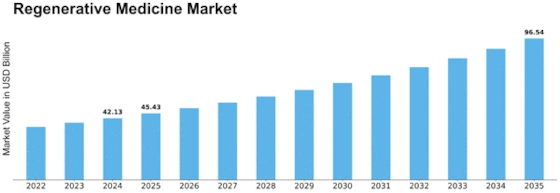


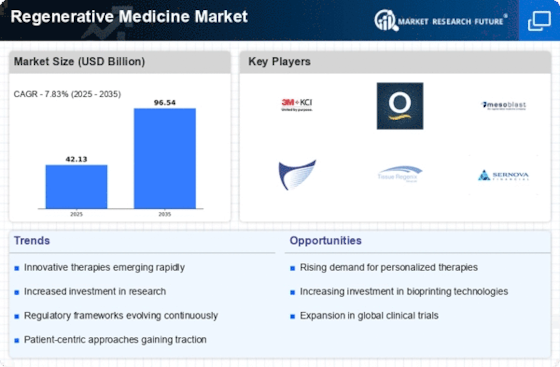
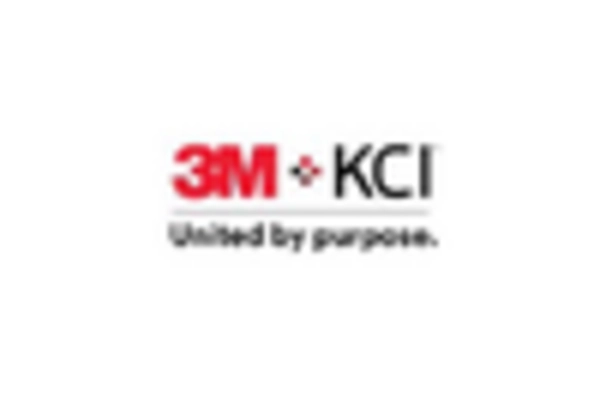
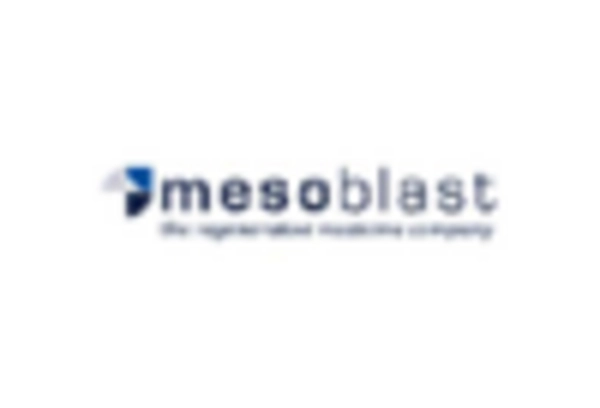

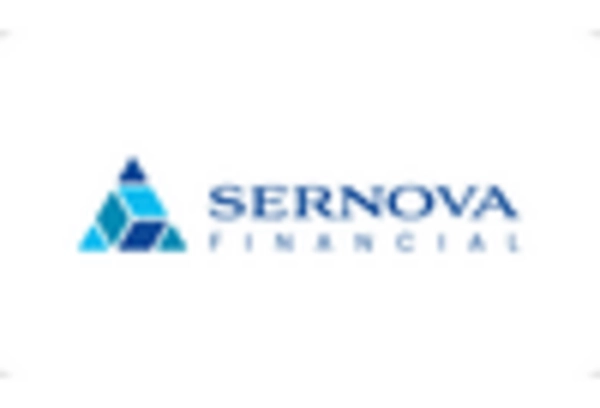
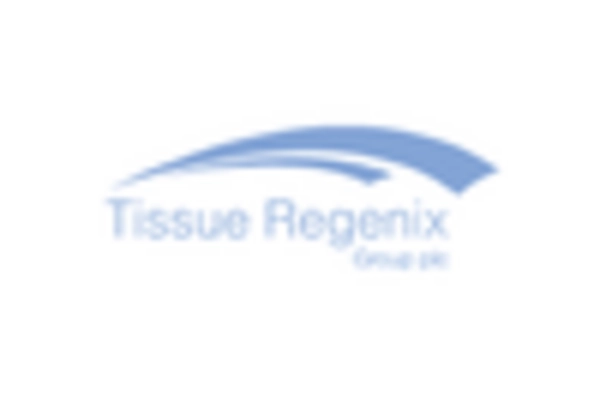
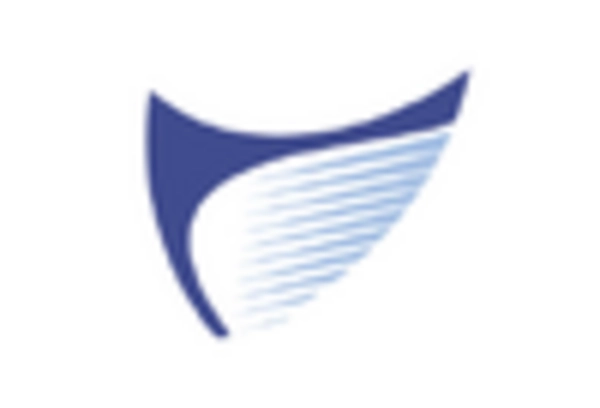










Leave a Comment